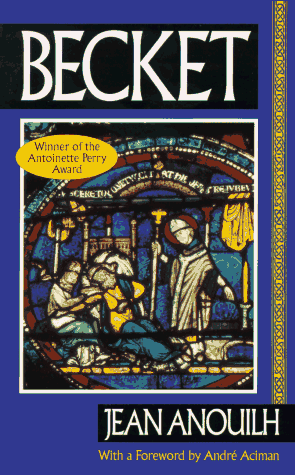Fiction
YA/Juvenile Nonfiction
Memoir
Collections (short stories, essays, etc.)
Drama
Poetry
1. The Woman Who Walked into Doors—Roddy Doyle
2. The Handmaid’s Tale—Margaret Attwood
3. Sense and Sensibility—Jane Austen
4. Lolita—Vladimir Nabokov
5. Reading Lolita in Tehran—Azar Nafisi
6. Human Chain: Poems—Seamus Heaney
7. Frankenstein—Mary Shelley
8. Essex County (Vol. 1-3)—Jeff Lamire
9. Alice in Wonderland—Lewis Carroll
10. Through the Looking Glass—Lewis Carroll
11. The Haunted Bookshop—Christopher Morley
12. The Wonderful Wizard of Oz—L. Frank Baum
13. V for Vendetta (graphic novel)—Alan Moore
14. Mushishi (Vol. 2)—Yuki Urushibara
15. A Circle of Quiet—Madeleine L’engle
16. Saving CeeCee Honeycutt (audiobook)—Beth Hoffman
17. Alexander Calder and His Magical Mobiles—Jean Lipman, with Margaret Aspinwall
18. The Road—Cormac McCarthy
19. Ender’s Game—Orson Scott Card
20. The Bird Woman—Kerry Hardie
21. Superman: The Complete History: The Life and Times of the Man of Steel—Les Daniels
22. The Science of Superheroes—Lois H. Gresh and Robert Weinberg
23. The Táin—trans. by Ciaran Carson
24. A Contract with God and Other Tenement Stories (graphic novel)—Will Eisner
25. Captain America: Sentinel of Liberty—Stan Lee
26. Road to Perdition (graphic novel)—Max Allen Collins
27. The Tiger Rising—Kate DiCamillo
28. An Arsonist’s Guide to Writers’ Homes in New England—Brock Clarke
29. Surfacing—Judy Gill Milford
30. The Graveyard Book—Neil Gaiman
31. Eat, Memory: Great Writers at the Table—Edited by Amanda Hesser
32. Sidekicks—Jack D. Ferraiolo
33. Life of Pi—Yann Martel
34. The Influencing Machine (graphic novel)—Brooke Gladstone
35. Stories for the Christian Year—The Chrysostom Society
36. West with the Night—Beryl Markham
37. How to Write a Sentence: and How to Read One—Stanley Fish
38. The Help—Kathryn Stockett
39. Sonnets from the Portuguese—Elizabeth Barrett Browning
40. Field Work: Poems—Seamus Heaney
41. The Awakening—Kate Chopin
42. The Waste Land—T.S. Eliot
43. Half Broke Horses: A True-Life Novel—Jeannette Walls
44. Alice Adams—Booth Tarkington
45. Lady Windermere’s Fan—Oscar Wilde
46. The Subversive Copy Editor: Advice from Chicago (or, How to Negotiate Good Relationships with Your Writers, Your Colleagues, and Yourself)—Carol Fisher Saller
47. Enchanted Irish Tales—Patricia Lynch
48. A Woman of No Importance—Oscar Wilde
49. To the North—Elizabeth Bowen
50. Peter and Wendy—J. M. Barrie
So the total:
23 Fiction (give or take Half Broke Horses)
8 YA/Children's Lit.
7 Nonfiction (though it feels funny to include books about superheroes in this category)
4 Poetry
3 Collections
2 Plays
2 Memoir/Autobiography
Again, six of these were graphic novels (or collections of graphic novelettes). Seven were on that literature list I like.
Other, shorter things I read included:
Cathleen Ni Houlihan—W.B. Yeats
Deirdre—W.B. Yeats
John Law: Detective—Will Eisner (and several Spirit comics)
After reviewing my 2010, 2009, and 2008 lists, I've made some reading resolutions for 2012. I'd like to try to read:
- At least two Pulitzer fiction winners each year
- At least one Nobel prize winning author I haven't read yet each year
- And six poetry volumes (this year, and then I'll reevaluate)
My fiction to nonfiction ratio tends to bounce around depending on what I'm researching, so I'll just let that change naturally over the course of the year. Two plays a year seems to be my average whatever resolutions I make. But now that I live closer to Seattle, maybe I'll see more plays.
Some bloggers I follow read 100+ books a year, which both awes and horrifies me. I think I'm happy sticking to fifty. I also have non-reading resolutions to keep.
What are your resolutions/goals this year? (Reading or otherwise.)




